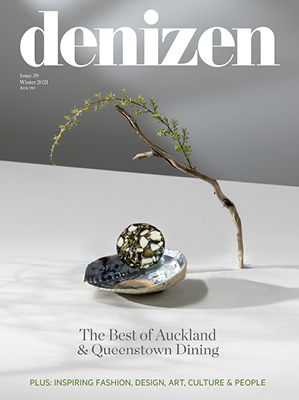Touted as a new-age solution for a raft of ailments, CBD is perhaps most recognised for its apparent ability to treat sleep disorders. But with little known about the nature and effects of this cannabis-derived substance, we turned to Paul Manning, co-founder and executive director of Helius (New Zealand’s largest licensed cannabis company) for some insight.
In layman’s terms, what is CBD? CBD is short for cannabidiol. It’s one of over a hundred naturally-occurring compounds (cannabinoids), found in the cannabis plant. Due to it being the most abundant, non-intoxicating compound, it has become the focus of thorough scientific research into its therapeutic potential. Not to be confused with THC (which is the ingredient in cannabis that can create a euphoric effect or ‘high’) CBD is non-psychotropic, making it an excellent option for people seeking the benefits of cannabis without feeling ‘out of sorts’. Last year a report by the World Health Organisation revealed that CBD may help treat symptoms relating to sleep deprivation, Alzheimer’s Disease, Parkinson’s Disease, MS, pain, anxiety, depression, cancer and diabetic complications. Recently, CBD oil has soared in popularity, with sales expected to hit $2b by 2022.

Can CBD effectively help people with chronic sleep problems? How? According to a major study in the US, insomnia is one of the most common reasons why someone might turn to CBD, with over 80% of consumers reporting CBD to be “very or extremely effective,” in treating sleep issues. Our view is that New Zealand-grown, medical-grade cannabis oil is the natural sleep solution we should all be turning to instead of heavy pharmaceuticals. Preliminary studies have proven CBD as an effective natural remedy for insomnia thanks to the way it interacts with the body’s endocannabinoid system. This system is involved in regulating many physiological processes and helping us maintain balance (known as homeostasis). It also sees our bodies produce a number of its own, naturally-occurring cannabinoids. Through CBD’s interaction with the endocannabinoid system via different receptors, proteins, and other chemicals in the brain, it can reduce anxiety and aid sleep, especially if your insomnia is due to a racing mind or high tension. Surprisingly, CBD can also help you stay awake. In smaller doses, it stimulates alertness and reduces daytime sleepiness which is important for regulating the sleep-wake cycle. In large doses (upwards of 150mg) CBD decreases sleep interruptions and increases total sleep time. We suggest experimenting with a dosage range that works for you to get amazing sleep.
CBD oil vs prescription sleep medication — What are the most significant differences between the two? Perhaps the most important difference between medical cannabis and sleeping pills is the fact that CBD is safer to use long-term. The majority of sleep therapy options are centred around conventional medication like sleeping pills which, while effective in the short term, can carry a range of unpleasant side effects. Sleeping pills generally fall under the umbrella of a ‘sedative hypnotic’. Benzodiazepines induce drowsiness and reduce anxiety, barbiturates depress the central nervous system, and some modern sleep aids focus on regulating the body’s natural melatonin production. The problem is, many of these are considered addictive substances and can result in patients developing dependencies on them within a few weeks. Those who stop taking sleeping pills often experience withdrawal symptoms and some sleeping pills are known to induce parasomnia, a sleep disorder that can cause you to move and behave erratically during sleep without your knowledge. Given the long list of side effects linked to sleeping pills, it’s not surprising that so many people are exploring the use of medical cannabis. There’s a growing body of research that shows THC and CBD as helpful in decreasing sleep latency and reducing mid-slumber awakenings. Medicinal cannabis has even shown promise as a treatment for more severe conditions like sleep apnea. We would, of course, advise that you always consult with your doctor to work out if CBD is right for you before changing courses.
What is the legal status around CBD in New Zealand right now? Last year, parliament passed the Misuse of Drugs (Medicinal Cannabis) Amendment Bill, and in December it became an Act. The Ministry of Health is now developing a scheme that will enable domestic commercial cultivation and manufacture of medicinal cannabis. Helius is the largest of only four companies licensed by the Ministry of Health so far, and we’re already preparing for local production. The law change also means that CBD and other non-psychoactive cannabinoids will be classified as prescription medicines under the Medicines Act (rather than as controlled drugs). Low-dose CBD products could be available over-the-counter at your local pharmacy next year (Helius is aiming to have its broad range of medicinal cannabis products available from 2020), but for now, you’ll still need a prescription from your doctor in order to get your hands on some.
What does the future hold for Helius’ CBD products in the New Zealand market over the next few years? CBD is just one of the cannabinoid profiles we will be offering, and eventually, we’ll be looking to put our name to a wide range of medicinal cannabis products. Helius has a very clear purpose: to improve quality of life. So we’re developing a wide range of effective, natural cannabis treatments to help with sleep and ease pain. Establishing our industry also opens up the opportunity to export local medical-grade cannabis to the world, which will bolster our economy. As our industry emerges from the shadows, cannabis is no longer the exclusive domain of fringe society and Helius is investing millions of dollars locally to bring medicinal cannabis into the mainstream. It has, after all, become a mainstream product, consumed by mainstream people. The world is turning green and as medicinal cannabis reform sweeps through many developed countries, now, it’s New Zealand’s turn.









